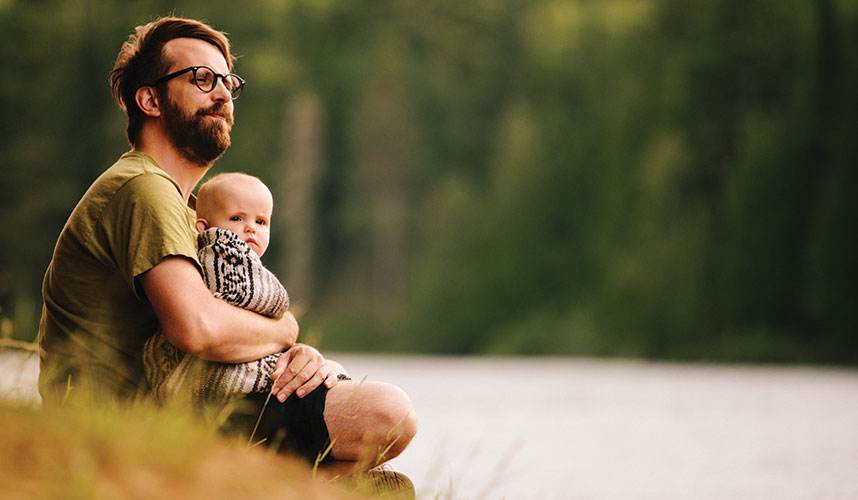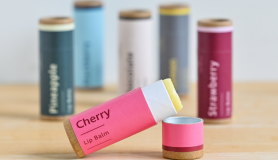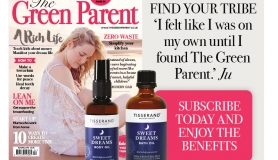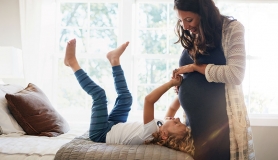As a creative mother, I have often found the line between forging an innovative professional life and showing up for my children, a fragile border to traverse. When I have given too much to one, the other has begun to flounder and vice versa. When I have embraced both I have seen myself rushing between one and the other, to my own detriment, in a wild attempt to achieve something!
It is undeniable that stressful themes like this can play out for parents, as we try to balance what we can offer at work and at home. And in today’s world there exists a potentially addictive shadow side to being industrious, which for many of us manifests in constant preoccupation, and perhaps in believing that we are never enough as we are.
When we look a little deeper it can even seem as if life, in all its temporality, is actually passing us by from moment to moment while we set our sights on other goals. And however prudent or exciting those objectives might be, their benefit cannot always outweigh the impact that being eternally distracted and busy may have on our lives.
SIMPLICITY
Yet alongside this tide of attainment and productivity that is so characteristic of our culture, comes a new wave of recognition that we as a species are becoming deficient in some of our basic human prerequisites to wellbeing. We are becoming so goal focused that we are forgetting how to ‘be’ where we are, and to enjoy the simplicity of living in the moment.
But wellbeing is something that we are learning we cannot take for granted because our contemporary lifestyles challenge us to take on varying degrees of stress which can make even the most solid foundations of emotional, mental and physical health more precarious. And as parents these stress levels can be higher.
The Mental Health Foundation, UK made a study in 2013-14 showing that 38% of first-time fathers were concerned about their mental health, and that 10% of fathers experience depression after the birth of their child. Likewise, the Royal College of midwives ran a recent survey through Netmums revealing that of all the mothers who responded, nearly 60% had experienced feeling down or depressed to varying degrees postnatally and 25% of these women had had significant symptoms.
But waking up to the reality of our potential vulnerability as parents can also lead us to look for other ways to redress our inner sense of balance. The prevailing revival of ancient tools for cultivating wellness and wholeness such as yoga, nature-connection, meditation, etc. has made disciplines like these commonly accessible. To me, their widespread popularity not only speaks of our obvious need to offset the stress in our lives, but it also points to our hunger for a deeper level of nurture. As an industrialised society we are needing connection and reconnection with ourselves, with each other and with the natural world.
EMPOWERMENT
As we seek this in greater depth we may start to experience that each of these connections are mirroring a bigger, wider sense of union beyond the individualised forms we inhabit. A sense of oneness and interconnectedness that both energises us collectively, while empowering us individually. And we can draw upon this collective energy, when we practice stopping, breathing and simply being where we are.
For me there is no time more valuable to become really present in this way, than on the parenthood journey. The vast responsibility required of us as parents makes having a stabilising, supportive practice not only useful, but vital. For mothers this responsibility is extended to our physiology as we grow, birth and sustain our newborns in their infancy and beyond. And the demands of this process can stretch our own state of health and emotional wellness beyond capacity in those early years.
“When we look a little deeper it can seem as if life, in all its temporality, is actually passing us by from moment to moment while we set our sights on other goals”
PRACTICING
Adopting some kind of contemplative technique as a parent is also a key part of developing our ability to really absorb and drink in all of our experience, as the childhood years fly briefly before us.
Using mindfulness training we can develop another tool to become aligned with the present moment, which entails non-grasping. This means that we become aware of how we meet our experience, noticing if we are evading it or craving for more, and then we try just to recognise the longing or aversion without attaching to it. This can help us to let go more and become fully present to ‘what is’.
For a parent, whose routine experiences may span from the heavenly to the hellish within hours or even moments of each other, being able to breathe and to witness this spectrum with spaciousness is a worthy personal asset. Having the capacity to see one’s life unfolding from a more centred and peaceful inner perspective can free us from the tendency to become anxious, drama-focused, triggered or undermined by challenges that arise.
SELF-CARE
If you are a mother or father already you will know that these are not mere trivialities in parental life. Self-care at the level of our physical, emotional and mental states of being, plays a big part in our ability to both enjoy parenthood and to cope with its demands. And by adopting attitudes or practices that enhance our core of wellbeing, we inherently benefit our entire family.
Recent research in the UK has shown that, over the course of a year, Mindfulness Based Cognitive Therapy has helped to prevent the reoccurrence of depression in 40-50% of trial participants. And studies made by leading universities in the US now recognise the huge benefits for women using Mindfulness-Based Childbirth preparation courses, which have statistically enabled mothers to use less pain relief and have helped to significantly reduce common rates of postnatal depression.
My feeling is that by taking the lead with what is happening internally, using whatever meditative or healing tools work for us, we can begin to manage our responses to stress. We can learn to activate our inner resilience in order to thrive as parents and we may find that both self-understanding and compassion are some of the precious gifts we gather along the way.
It is no exaggeration to say that we, as parents, are literally carrying the next generation in our loving arms and our load can be heavy with the intricacies of our modern lives. Surely this is one of the most important jobs there is, and we need every ounce of support and nurture available to us. The more we can internalise this support, the more self-reliant we can be in maintaining our own wellbeing, so that our children can rise up with the strength of healthy, balanced family roots growing firmly beneath them.
Riga is a doula, birth-preparation facilitator, therapist and author. She lives next to a beautiful woodland in East Sussex with her husband and two children
MORE INSPIRATION
READ Mindful Pregnancy & Birth – Nurturing Love and Awareness, published by Leaping Hare Press.
EXPLORE Riga’s work at rigaforbes.co.uk







